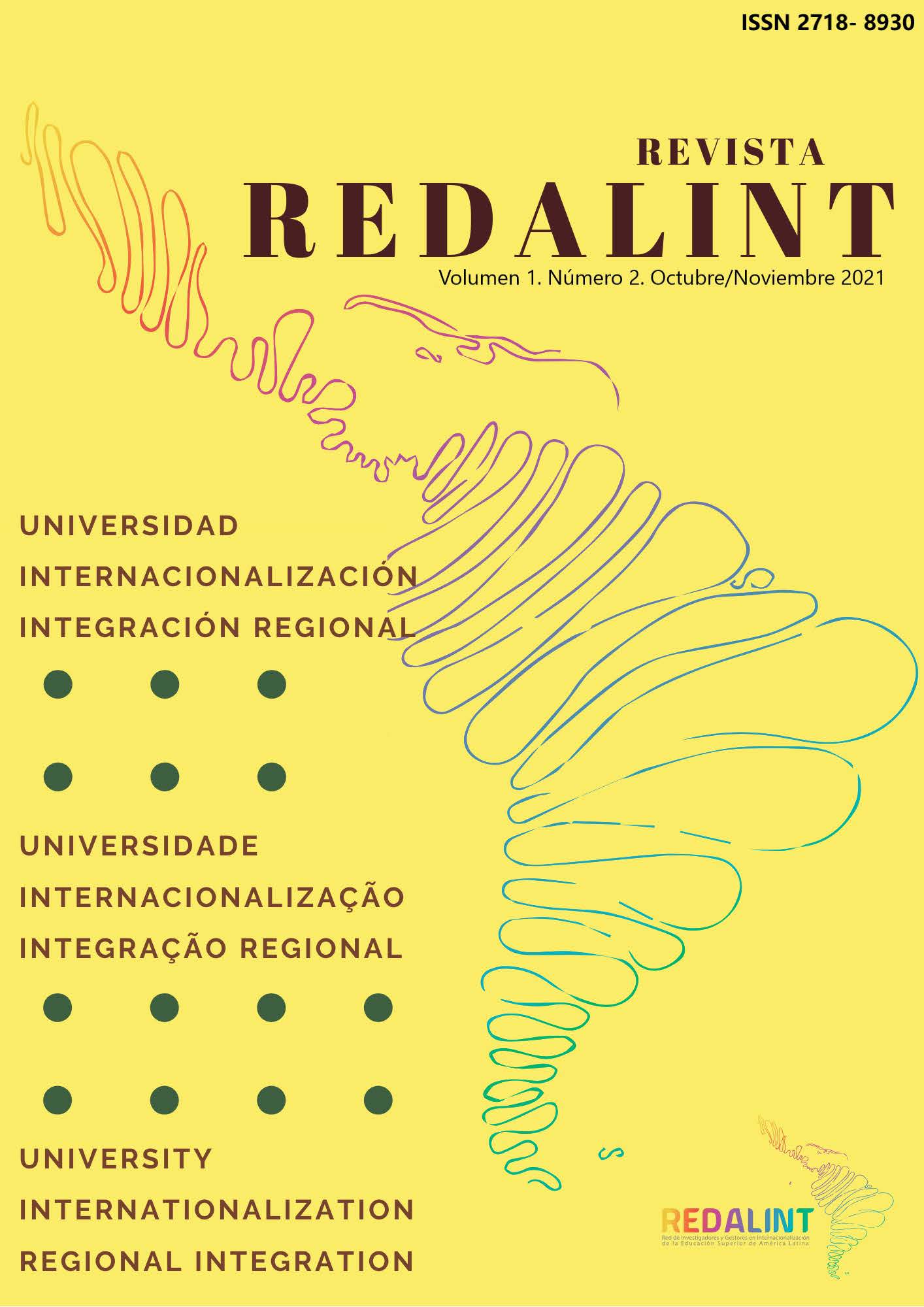Las bases epistemológicas de la internacionalización de la educación superior en Brasil
Keywords:
Educación superior, Internacionalización, Epistemología, Brasil, (des)colonialidadAbstract
This paper, a portion of a doctoral dissertation, aims at understanding the epistemological bases of the dominant discourses on internationalization at a Brazilian public university. Based on the idea of (De)Coloniality, which emphasizes the hidden and darker side of Western modernity, I summarize the results of a qualitative empirical research conducted at the university, where I collected data through direct observation, interviews, bibliography, and documents. The results were organized in
five categories: (1)internationalization as an imperative and unconditional good; (2)internationalization as an object resultingfrom external determinations; (3) “Exclusively in English, of course”; (4)internationalization as means to stratification and generalized competition; and (5)internationalization as a means for the diffusion of modern/colonial rhetoric. These categories signal that in the university context, dominant internationalization discourses and strategies neglect
unequally international relations constituted throughout history and do not cover the comprehensiveness, diversity, or complexity of a Brazilian public university. Instead, they are highly functional to the current stage of ongoing global capitalism, reflecting a project that is designed to transform the university institution into an organization exclusively dictated by economic rationality. Additionally, results suggest that the dominant interpretation of internationalization at the university is
immersed in the cultural matrix of colonial power; it operates under the foundation of a hierarchical global imaginary that tends to reinforce unequal geographies of power, knowledge, and being. The study argues that enabling the conception of other ways of doing, living, and being in higher education international relations implies distancing from mainstream discourses that have been uncritically adopted and reproduced. The research contributes to deconstructing the discourse that
places this process as an “unconditional good”, shedding light on its complexity and attachment to political and ethical issues that are contestable and contradictory. More generally, it contributes to the development of an emerging field of critical internationalization studies.
Downloads
References
Bamberger, A., P Morris, & M Yemini (2019). Neoliberalism, Internationalisation and Higher Education: Connections, Contradictions and Alternatives. Discourse: Studies in the Cultural Politics of Education 40, 2:203–216.
Bhambra, G., D. Gebrial & K Nişancıoğlu (2018) Decolonising the University: London: Pluto Press.
British, C. (2018) Passos Certeiros: Como a Universidade Federal de Santa Catarina Está Encaminhando a Internacionalização. Universidades Para o Mundo: Desafios e Oportunidades Para a Internacionalização:20–21.
Childress, L. K. (2009) Internationalization Plans for Higher Education Institutions. Journal of Studies in International Education 13, 3:289–309.
Clarivate A. (2018) Global Highly Cited Researchers 2018 List Reveals Influential Scientific Researchers and their Institutions. Clarivate Analytics.
de Wit, H., F. Hunter, L. Howard & E. Egron-Polak (2015) Internationalisation of Higher Education. European Union.http://www.europarl.europa.eu/RegData/etudes/STUD/2015/540370/IPOL_STU(2015)540370_EN.pdf.
Dobbins, M. (2015) “Convergent or Divergent Europeanization? An Analysis of Higher Education Governance Reforms in France and Italy.”International Review of Administrative Sciences 83, 1:177–99.
Dussel,E.(1993)“EurocentrismandModernity(IntroductiontotheFrankfurtLectures).”ThePost modernisn Debate inLatin America20, 3:65–76.
Escobar, A.(2003) Mundos y Conocimiento deOtro Modo.Tabula Rasa, 1:51–86.
Fairclough, N. (2016) Discurso e Mudança Social. Brasília: Editora UNB.
Fairclough,N.(2012)“AnáliseCríticadoDiscursoComoMétodoemPesquisaSocialCientífica.”LinhaD’Água 25, 2.
Fairclough, N. (2003) Analysing Discourse:Textual Analysis ForSocialResearch.London: Routledge.
Fanon, F. (2005) Os condenados da terra: Juiz de Fora: Editora UFJF.
Gebrial, D. (2018) “Rhodes Must Fall: Oxford and Movements for Change.” In Decolonising the University, eds. Gurminder Bhambra, Dalia Gebrial, and KeremNişancıoğlu.London: Pluto Press.
Giampapa, F. & S. Canagarajah (2017) “Skilled Migration and Global English” Globalisation, Societies and Education 15, 1:1–4.
Gomes, A. M., S. Robertson & R. Dale (2012) “The Social Condition of Higher Education: Globalisation and (Beyond) Regionalisation in Latin America” Globalisation, Societies and Education 10, 2:221–245.
Grosfoguel, R. (2016) “A Estrutura do Conhecimento Nas Universidades Ocidentalizadas: Racismo/Sexismo Epistêmico eos Quatro Genocídios/Epistemicídios Do Longo Século XVI” Revista Sociedade e Estado 31, 1.
Hudzik, J. K. (2011) Comprehensive Internationalization: From Concept to Action.Washington, DC: NAFSA: Association of International Educators.
Hudzik, J. K. (2015) “Barriers and Barrier Reduction for Comprehensive Internationalization” In Comprehensive Internationalization:Institutional Pathways to Success, ed. John K. Hudzik Abingdon, Oxon, UK: Routledge.
Laus, S. P. (2012) A Internacionalização da Educação Superior: Um Estudo de Caso da Universidade Federal de Santa Catarina. UFBA.
Leite, D. & M. EllyHerz Genro (2012) “AvaliaçãoeInternacionalizaçãodaEducaçãoSuperior:QuovadisAmérica
Additional Files
Published
How to Cite
Issue
Section
License
Copyright (c) 2022 Revista REDALINT. Universidad, Internacionalización e Integración RegionalEsta revista proporciona un acceso abierto inmediato a su contenido,bajo una licencia
Atribución-NoComercial-SinDerivadas 2.5 Argentina (CC BY-NC/2.5/ar)

Según la cual es posible copiar, comunicar y distribuir públicamente su contenido siempre que se cite a los autores individuales y el nombre de esta publicación, así como la institución editorial.





